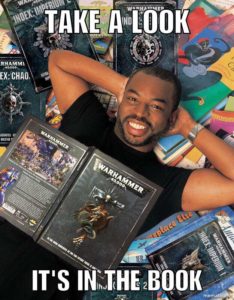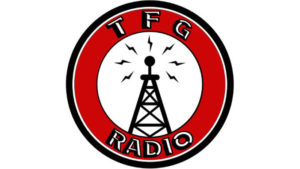Hey everyone! Adam, from TFG Radio, here once more to fill your mind with information to replace the important ones in your head!
I’ve been helping run tournaments since 3rd edition. I have previously run events out of people’s garages and in large conventions. It’s not just limited to Games Workshop games either. Currently I am one of the head judges for the Las Vegas Open and help out with our local grand tournament, Hammer of Wrath GT. With the new ITC season upon us, there has been a lot of talk about the role of judges, or referees, in tournaments and different ways that they can help create a better competitive atmosphere. Unfortunately, the one thing people haven’t been talking about is perhaps the most important, the judge is always right (at that moment).

Now I know what you’re thinking, “but Adam, there have been plenty of times when we went back to look at a ruling that was made and the judge was wrong”. To that I say, “Too bad, so sad” (Although I’m not really sad for you). So let’s take a look at a common scenario:
You and your opponent are playing your game. It has been going fairly well. It’s a close game, but there have been no major disagreements or issues. As you get to a critical point in the game an issue comes up that you both cannot agree upon. For this example, let’s say it has to do with the main rules. You both decide to stop your game and call a judge over. They stop by your table, listen to the question and any other info they may need, then make their decision. Although you disagree, you continue with the game. After the game, or even during the game, you figure out that the ruling that was made was incorrect. So what are your options? Short answer is that you have none.

The moment you call a judge over, you give up all rights to being right. The judge becomes an arbitrator for the two players. As a result, both players basically agree to the decision of the arbitrator, whether they are right or wrong, and should not dispute the decision once it is made. Yes, you could argue the decision with the judge, but, if they do it right, they will make their decision and then be on there way to decide some other table’s fate.
There are ways you can help the judge come to the best decision. Have the rules handy and ready for them to reference, analog or digital. DO NOT USE OR RELY ON BATTLESCRIBE. Although helpful, it is not a reliable tool for rules referencing. Be sure to fully explain what the situation is. If you leave any important details out it could adversely affect the decision and end up not being in your favor. Most importantly, accept the decision with grace, whether it is for or against you. Come at a judge with attitude toward their decision and you will easily gain a reputation among the small community of judges and possibly even removed from the tournament. Oh, and I guess hope I don’t show up when you ask for a judge 😉
That’s all for this week, I hope you enjoyed the read. For the record I have been right 100% of the time(at that moment) so don’t bother telling me how wrong I am. My wife already does that. If you have any ideas, or suggestions for topics, please post it in the comments section. Don’t forget to visit our Facebook, Twitch, and Patreon pages to stay up to date on what we’re up to and when episodes drop!
And remember, Frontline Gaming sells gaming products at a discount, every day in their webcart!




Great article, Adam. I always tell new judges to not get too hung up on being right at the cost of expediently answering a questions as best you can. In games as complex as these, and the fact that judges are volunteers, you do the best you can to give an unbiased answer to allow the game to continue and you move on. Sometimes you give the wrong answer which stinks but it happens. You can’t worry about it so much as a judge that you take ages to answer each question as that is doing more harm to the event than the occasional wrong answer.
As long as you have an established methodology and are transparent about it, the players come in accepting the fact that if they call a judge to answer their questions, they are asking an imperfect human being to resolve a conflict for them during a time sensitive game. They cannot come in expecting exactly the right answer every time (and often in complex rules interactions there is no established answer, yet) but are asking for resolution to an issue they and their opponent have been unable to resolve themselves. The judge arbitrates this conflict from a neutral position to the best of their ability use the rules as a guide.
It’s a tough job, but I am glad there are those in the community willing to do it.
Always remember: http://i0.kym-cdn.com/photos/images/newsfeed/000/479/591/e6a.jpg
I feel like this should have gotten more angry comments…
Maybe people haven’t been talking about it because it’s kind of a given now. I think most people are pretty on board!
Yeah, good point, lol.
Yes, good point. I am still disappointed at the lack of internet rage at Adam in general though.
Yeah, isn’t this pretty much just a fact since about forever? Like back to second Ed and in any other game ever. The only people I remember ever getting into discussions with as a judge were the garage-gods who just couldn’t cope with realising they were very small fish out in the ocean.
Thanks because people actually like me, John
So that’s how you sleep at night! I always wondered…
Nicely written. Cheers!